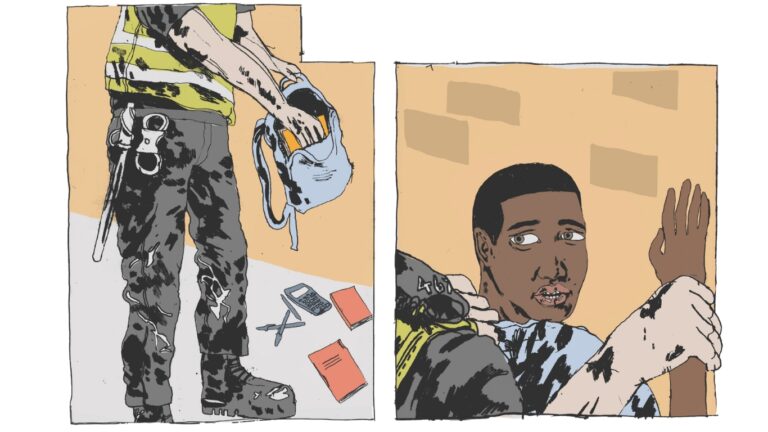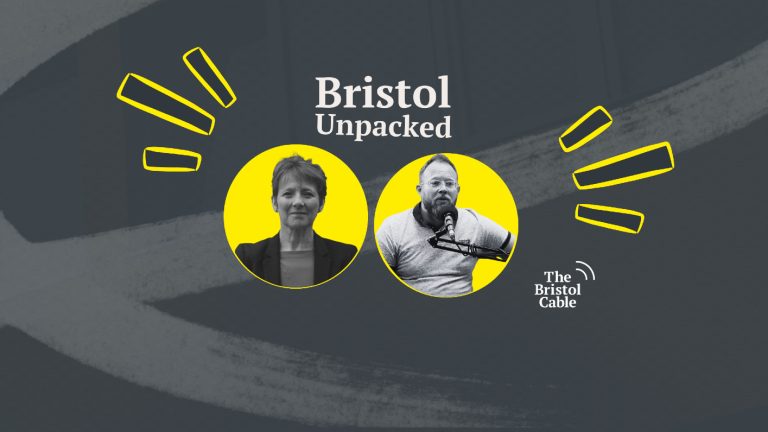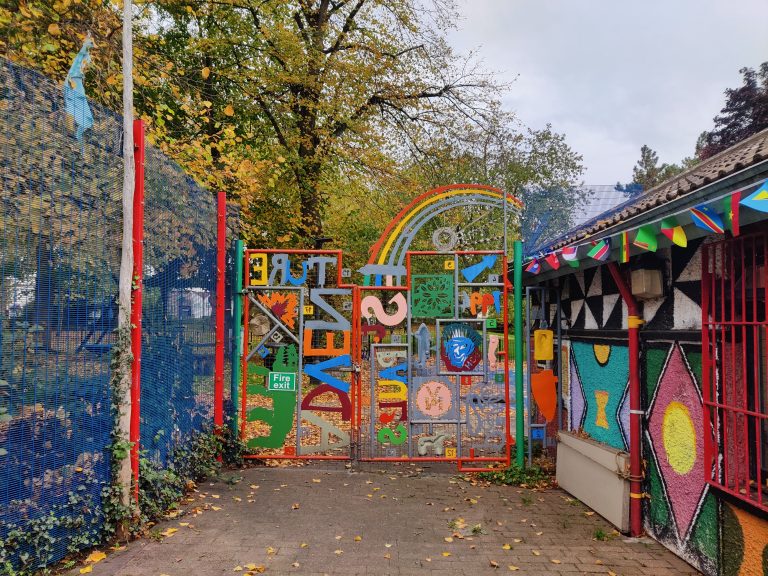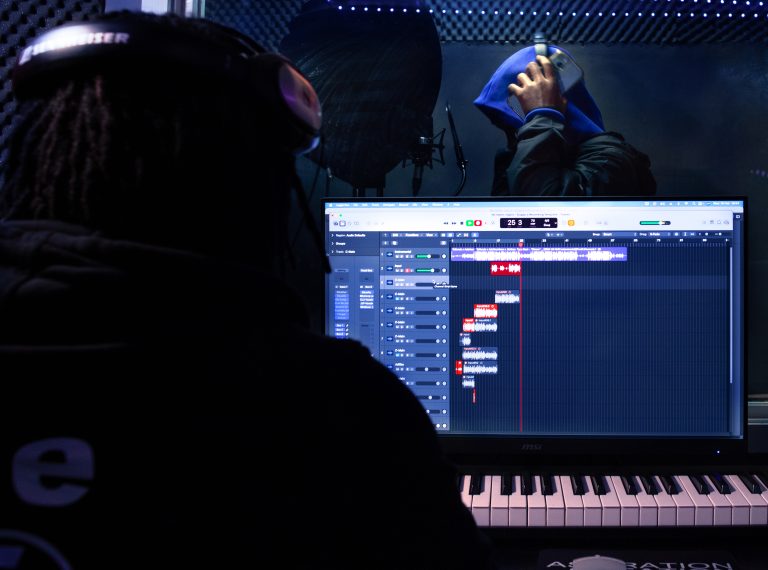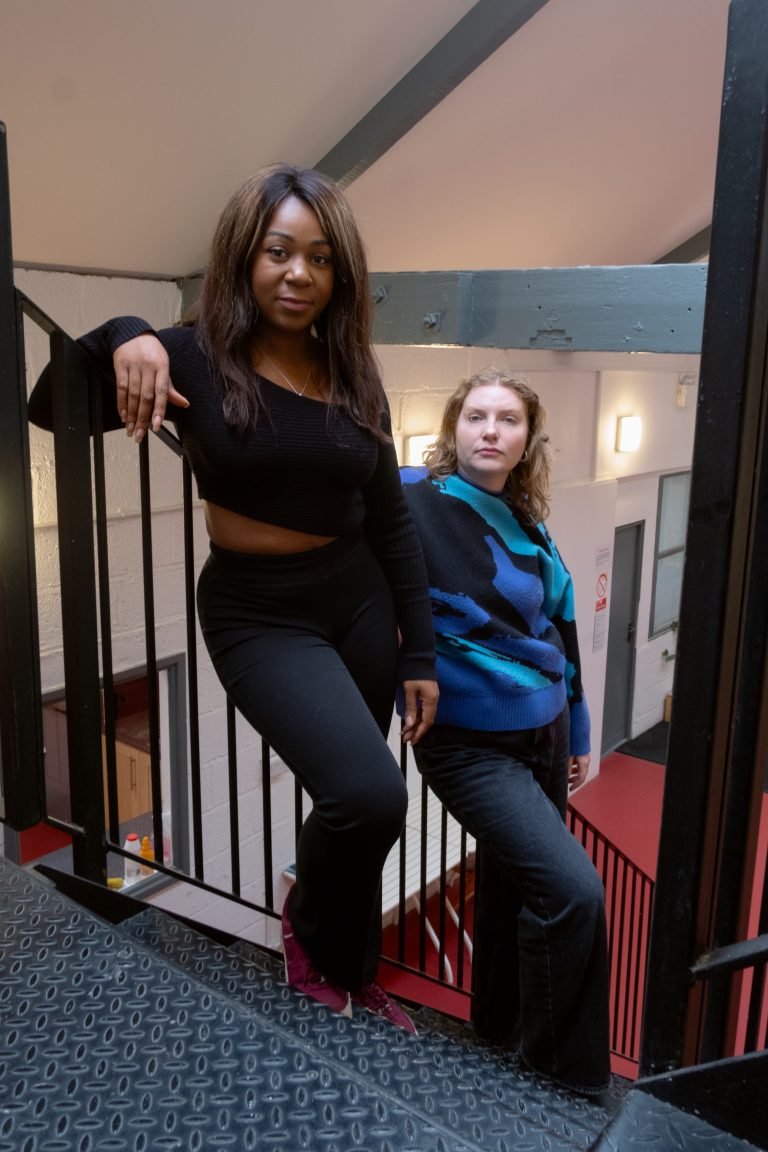‘Like riding a wave – then the water cuts out’: Bristol’s TV workers hit by redundancies as companies close down

Illustration: Gus Sco
“Living contract to contract takes a toll on you.” Amelia*, an assistant producer with over six years’ experience, knows she won’t be able to work in TV forever.
The precarity of the freelance model means long-term security is seldom guaranteed, and recently it’s been scarcer than ever. The list of companies in Bristol who have shut up shop (RDF West, Icon, Evolutions) or made redundancies (BBC, Aardman, Plimsoll) due to market pressures reads like a roll call of the city’s creative heavyweights.
“Every company still looks at the BBC as a benchmark of what’s going on – for them to let go of their staff, that just spells danger for the rest of us.
“When I started in 2019 to 2022, it was booming,” Amelia remembers. “It’s like riding a wave and all of the sudden the water just cuts out.” She has friends who have been out of work for two years. “Everyone in TV right now is scared. I don’t know one person that isn’t.”
In an industry that is highly competitive and can involve demanding hours, it’s forced people to “give more and more of yourself,” she adds. “You just feel that you need to prove that you need to be there because there are hundreds of people waiting in the wings, without jobs, waiting for a chance to get back in.”
But the downturn hasn’t hit everyone equally. The precarity of the freelance model impacts people from lower socioeconomic backgrounds, while a recruitment model which relies on employing familiar faces can lead to unconscious bias and prevent new entrants from getting a foot in the door.
Precarious contracts in a struggling industry
“Every time your contract is coming to an end, you have to prove yourself all over again. You have no room to make mistakes. You have even less room if you’re brown, if you’re a woman, if you’re an immigrant, if you have a disability,” says Amelia, who is frequently the only non-white member of her team.
She has experienced discrimination in various forms, including being handed a shorter contract than the rest of her white colleagues on a project she joined first.
You can have lots of busy people on busy productions under huge time pressures, and in terms of hiring the default can be to recruit from the pools they already know
Reema Lorford, Gritty Talent
There is not necessarily a lack of will to improve diversity, notes Reema Lorford, COO of Gritty Talent, which works to make production teams more inclusive. “You can have lots of busy people on busy productions under huge time pressures, in terms of hiring the default can be to recruit from the pools they already know.”
Film and TV production is key to Bristol’s cultural and creative weight, contributing £30m to the city’s economy in 2023–24, but the industry is struggling. Strikes in Hollywood in 2023 brought productions to a halt, while streamers and broadcasters are increasingly cash-strapped as advertisers turn to YouTube. It’s hardly surprising that pre-pandemic levels of work have not returned.
According to research by industry union BECTU, more than half (52%) of the UK’s film and TV workforce were still out of work in July last year, down from three quarters of workers in September 2023 when the Hollywood strikes were in full force. 38% of screen workers said they plan to leave the film and TV industry in the next five years.
It’s a situation made even more difficult by the fact that most people are forced to freelance instead of being employed. “That creates an unstable, unsteady working life,” says Stephanie, a series producer who has worked in the industry since 1994 but who’s struggled over the last year to find a contract. “Within this particular period, that has really made a lot of people’s lives very difficult.”
She has heard of colleagues who have left the industry, taken on other jobs to make ends meet or used up their life savings during the crisis. “There are a lot of freelancers who feel like they’ve devoted their lives to the industry and they’ve been deserted.”
The freelance model is particularly challenging for people from lower socioeconomic backgrounds as well as new entrants to the industry. “At a lower level, it’s harder to sustain gaps in work […] because you can’t fund yourself through the two months while you look at your next job,” says Reema.
There are initiatives that open up entry-level jobs, but the issue is what happens beyond that. “What we see anecdotally and in statistics, is the schemes work really well but the retention after is a real problem,” she explains. “It’s how you get people from a really great scheme to a career that grows.”
One of the key takeaways from Ofcom’s latest research is that broadcasters must focus on retention and progression in particular. It found the underrepresentation of disabled people (11% of total employees) and those from a working-class background (27%) remains a significant issue, undoubtedly due to the uncertainty of freelancing.
It also showed representation from lower socioeconomic backgrounds has not increased in the last few years, while there is a ‘revolving door’ problem where almost as many people from minority ethnic groups are leaving (23%) as joining (26%) the workforce.
‘Talent is everywhere. Opportunity is not‘
Bristol was involved in 32 major productions in the 2023–2024 financial year, while Channel 4 recently announced its plan to invest in its Bristol office and create more job opportunities. But while the city may be a flourishing regional hub, not being the capital still has its challenges. Part of the reason freelancers here have suffered is because London crews are often the default choice, says Stephanie.
“Something that would normally take three months to develop and get greenlit [commissioned] now takes 18 months,” she explains, with that time being a precious resource only available to larger London companies. “The incentives to move out to Bristol or the regions aren’t so great any more because the talent is going where the work is or they already know plenty of talent looking for work in London that have those credits.”
The culture secretary Lisa Nandy pointed to this in a much-lauded Royal Television Society talk last October, in which she asked companies filming outside London to stop “bussing people in” and instead recruit locally. “Talent is everywhere. Opportunity is not.”
“What this downturn has really flagged is that we fundamentally have an unsustainable business model for production in the UK,” Reema says. “When the writers’ strike hit and all that money went, it affected Bristol really badly. How does the UK make its own creative sectors more resilient?”
She adds that companies in Bristol need to nurture the talent that’s already here, not just “hire people who’ve done those shows before.”
Bristol’s community rallies together
Ofcom’s report does celebrate plenty of new initiatives for pushing diversity and inclusion forward: more detailed analysis of representation by the Creative Diversity Network; a scheme to strengthen the industry’s approach to class and social mobility from the TV Foundation; a cross-industry campaign group called Action for Freelancers; a five-year strategy with a focus on inclusivity from training body ScreenSkills; and a revamp of the Freelancer Charter backed by industry union BECTU among others.
In Bristol, Amelia meets regularly with colleagues from minority ethnic backgrounds to share experiences and support each other. “For the people who are diverse, the best way we can support each other is by building community as an antidote to the highly competitive environment that we live in,” she says. “A space where we support each other and are able to talk about things safely.”
Stephanie is taking a similar line, campaigning and advocating for freelancers within Bristol’s creative industries. In November 2023, she met with the then-shadow culture secretary Thangham Debbonaire and put together freelancer testimonials for Angela Rayner’s legislation for working people.
She started Bristol Unscripted Network with her peers, which has allowed her to pour her creative energy into providing training, starting a documentary club, and putting on panels about the crisis, including a sold-out event at the Watershed last year. “Because of BUNS I keep going, because I feel it’s really important to support the freelance community here,” she says. “The community doesn’t deserve what’s happening to it at the moment. We love what we do.”
*Name has been changed to protect anonymity.
For more information on Gritty Talent and its work to increase diversity in the screen industries, head to www.grittytalent.tv
Independent. Investigative. Indispensable.
Investigative journalism strengthens democracy – it’s a necessity, not a luxury.
The Cable is Bristol’s independent, investigative newsroom. Owned and steered by more than 2,600 members, we produce award-winning journalism that digs deep into what’s happening in Bristol.
We are on a mission to become sustainable, and to do that we need more members. Will you help us get there?
Join the Cable today

